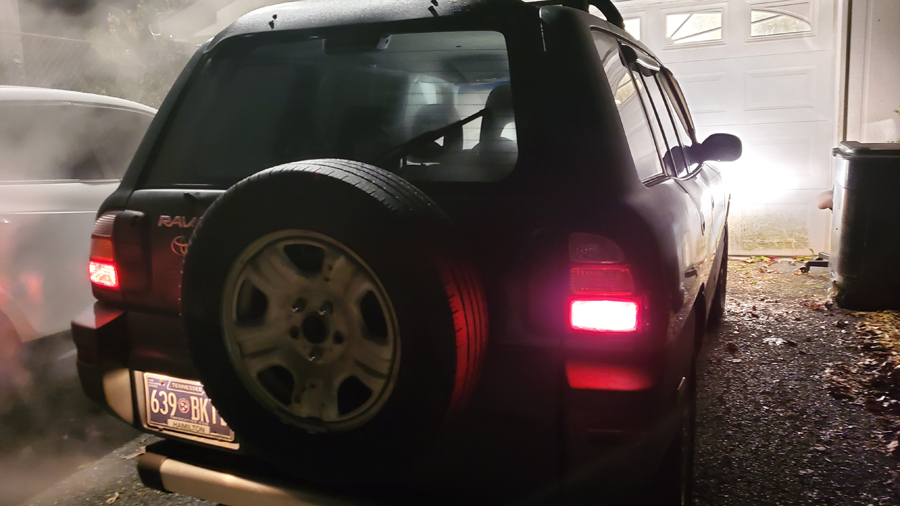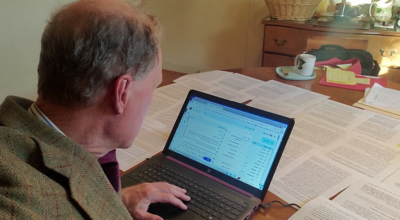
This is the car focus of my new court case, startig off in criminal court. I am arrested because the right rear taillight has a bit of missing plastic. This photo is take after I put translucent red tape across the broken piece of plastic of the functioning light. (Tulis Report)
The exercise of police powers must have a warrant or probable cause. Probable cause is the legal reason to make an arrest.
By David Tulis / NoogaRadio Network
The “Gnomes” are right, I’m pretty sure, in the distinction between police and tax powers. Traffic stops are legally COMMERCIAL, connected to taxes, specifically privilege taxes and privilege enforcement.
There is a single law that gives lie to the fraud of commercial government. That statute cuts through the fog put up by state actors that all travel is commercial, and no one can use the public road without a driver license and a tag. If all travel is commercial, then it’s true: You cannot be on the road without license and tag.
But travel does exist apart from taxable activity. That would be the private rights I am defending in my case against the revenue commissioner. The commissioner (and under him the cops and deputies and troopers) enforce the TAX law.
If you are truly in commerce as a carrier, a motor carrier hauling goods or people for hire as your sole business, you can be stopped without probable cause because you have already agreed to be stopped by the troopers, who enforce the revenue and tax laws for the revenue department. You have pre-agreed to be stopped for a license check.
The law is in the warrantless by officer statute at T.C.A 40-7-103. Let’s try to figure out how this statute is constitutional, and fits into the framework that contains a clear demarcation between police power and liberty. It’s constitutional because it offends no constitutional rights. It recognizes that troopers — and ONLY troopers — have this pre-agreed-to arrest and inspection power without a criminal warrant.
(c) Unless a law enforcement officer has probable cause to believe that an offense has been committed, no officer, except members of the Tennessee highway patrol acting pursuant to § 4-7-104, shall have the authority to stop a motor vehicle for the sole purpose of examining or checking the license of the driver of the vehicle.
Tenn. Code Ann. § 40-7-103
It is the duty of the members of the Tennessee highway patrol, under the direction of the commissioner of safety, to:
(1) Patrol the state highways and enforce all laws, and all rules and regulations of the department of transportation regulating traffic on and use of those highways; and(2) Assist the department of revenue and the county clerks of the state in the collection of all taxes and revenue going to the state, and in the enforcement of all laws relating to same.


Check the first line of the Tennessee Constitution. According to it, police of any kind, have no Lawful Power with regard to People. Arrest of People requires a warrant, by Law of the People.